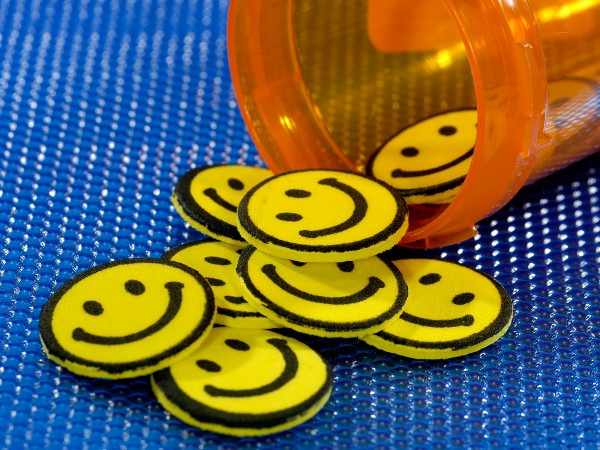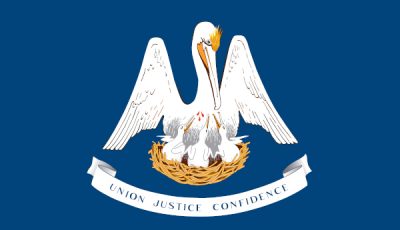Everything in Moderation, Including Porn
 WASHINGTON – In the modern anti-porn movement, there’s an immense emphasis on the alleged impact of porn on those who compulsively overindulge in watching the stuff.
WASHINGTON – In the modern anti-porn movement, there’s an immense emphasis on the alleged impact of porn on those who compulsively overindulge in watching the stuff.
Whether it’s a celebrity like Chris Rock or Russell Brand revealing his porn-problems, or an unidentified author of a Dear Abby-style letter seeking advice, the focus is always squarely on the prospect of porn overwhelming the lives of its viewers, ruining their relationships and tarnishing everything in its smutty path.
What we don’t often hear, it seems to me, is any discussion of porn viewing done in moderation, or an assessment that addresses the percentage of porn viewers who overindulge in comparison to those who watch porn occasionally but wouldn’t fit any reasonable person’s definition of an “addict.”
While the story of an occasional porn viewer not having his or her life ruined by a porn habit probably isn’t as compelling as a tearful admission of compulsive behavior that reached problematic territory, from a public policy standpoint, it’s probably not wise or desirable to base laws and regulations on worst-case scenarios.
While I’m skeptical about claims comparing porn to addictive substances, even if one accepts the analogy or believes “addiction” is the right term to apply to compulsive porn-viewing behavior, approaching the regulation of porn as though it’s heroin (as opposed to, say, cigarettes) seems to me an overreaction.
Unlike the many different controlled substances that are either tightly regulated or outright banned under the law, pornography is not something physical we literally consume. If anything about porn can be said to be physically or chemically addictive, it’s not the porn itself, but the endorphins released by watching porn.
I assume nobody is suggesting we should strictly regulate every activity that results in the release of endorphins, because doing so would mean imposing strict regulations on everything from the consumption of chocolate to working out, or even just listening to music.
In addition to causing the release of endorphins, there’s something else these behaviors and activities have in common with porn: Any of them, done to excess, can become problematic. (Yes, there is such a thing as over-exercise.)
While it’s theoretically possible for someone to cause serious problems in their day-to-day life by overindulging in just about anything, so far as I’m aware nobody has ever suggested a state legislature designate eating chocolate or jogging or listening to electronic dance music or snorting lavender to be a “public health crisis.”
To be fair, there’s probably not some hidden consumer trend involving millions of people a day nose-hoovering enormous piles of lavender, but you get my point: Porn is just one of dozens of things people do that can release “feel-good chemicals” inside their brains. Few others draw as many headlines or as much collective hand-wringing from self-appointed experts, though.
While I may eventually be proved wrong on this point, I believe the exaggerated claims of the anti-porn movement and the constant comparisons of porn to substances like cocaine and heroin is a rhetorical mistake. Among other things, it tends to trivialize the truly crippling condition of chronic substance abuse and the immense difficulty most people experience in kicking their physical and chemical addictions. Many of those who know better, either because they have experienced drug addiction themselves or because someone they know and love has, will reject the comparison as overwrought, possibly even insulting.
If nothing else, making repeated analogies between heroin or cocaine addiction and porn addiction will only lead to sarcastic skeptics like me asking how much time I should anticipate spending kicking, screaming and vomiting while my body recovers from porn-withdrawal symptoms.
Instead of hammering people with the notion porn is a heroin-like substance destined to destroy the lives of all who touch it, perhaps it would be more constructive to treat it like the consumption of alcohol — certainly problematic when taken too far, but relatively harmless when done in moderation.
This is not to say compulsive porn consumption is equally as deleterious for the “addict” as alcoholism, just that in approaching the issue, it might be more persuasive to appropriately warn people against the problems of overindulgence while conceding the fact a little porn watching isn’t going to lead inexorably to the personal destruction of the porn-consuming individual.
From a public relations standpoint, I also think it would benefit the adult entertainment industry to acknowledge there is such a thing as watching too much porn and to encourage its customers to exercise restraint — not just in how much they watch, but how, when and where they do it.
Again, I may be proved wrong, but my sense is all this hubbub about porn being a public health crisis is leading somewhere, and the most likely place it’s leading is to further regulation of (and possibly restrictions on access to) porn.
One way of getting out ahead of the movement toward greater regulation of porn is for the industry to show it is concerned for the lives and wellbeing of its customers. The occasional disclaimer warning people to consume porn in moderation, paired with a reminder they’re watching fantasy not intended to be a “how-to” or any form of sex ed, could go a long way in communicating we’re reasonable, rational and capable of being good corporate citizens.
This call-for-moderation approach isn’t all the industry would need to do toward assuring we’re spared potentially damaging regulations and restrictions, of course, nor is it likely to end the call to treat our products as a public health crisis.
It would be a good start, though — and one that would come not a moment too soon, if certain pre-election pledges are any indication.
Image © Dana Rothstein.
One Comment
Leave a Reply
You must be logged in to post a comment.














Pingback: Everything in Moderation, Including Porn – TripleXers Blog